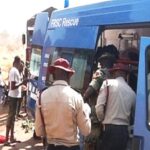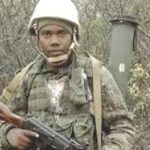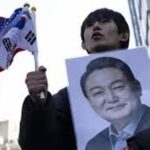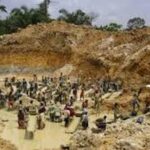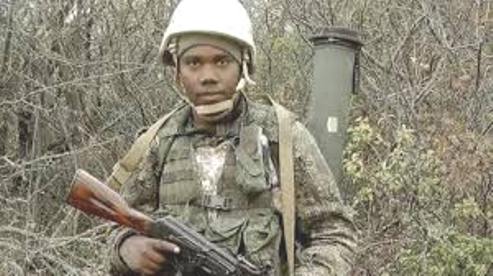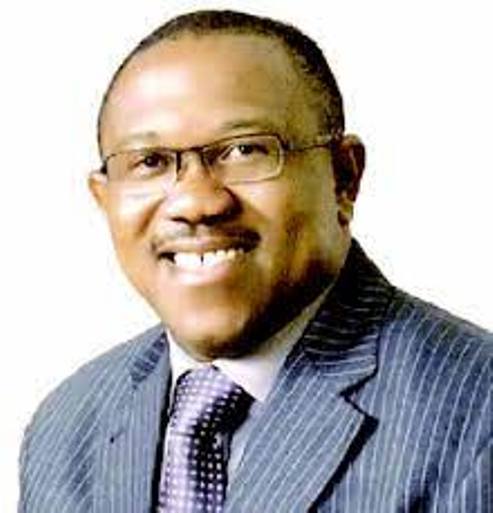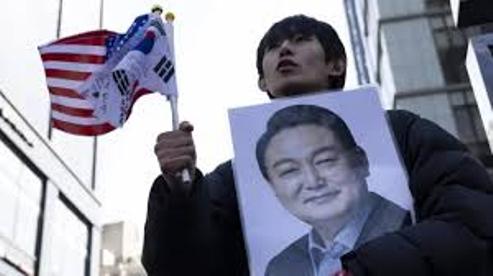
LAGOS MAY 1ST (NEWSRANGERS)-With his country ensnared in mounting jihadist violence, bandit attacks and kidnappings, Nigerian President Muhammadu Buhari is under fire from allies and enemies alike for appearing incapable of tackling the security crisis.
April saw an almost daily toll of bloody assaults and abductions in Africa’s most populous nation.
In the past week alone, at least 240 people have been killed and more than four dozen kidnapped, according to tallies by local media, ranging from kidnapped students shot by gunmen to troops killed in a jihadist ambush and police killed by cattle thieves.
Senators, local governors and even the country’s Nobel literature laureate Wole Soyinka are now calling on Nigeria’s 78-year-old president to step up and do more to curb the violence.
Parliament this week urged Buhari to declare a nationwide state of emergency.
More critical voices asked why the commander-in-chief appeared all but absent in the crisis.
“This is the worst instability we are facing,” said Smart Adeyemi, a senator from Buhari’s own ruling All Progressives Congress (APC) party. “This is worse than the civil war.”
Some rhetoric may be rooted in political jockeying for the 2023 election. But the scale of attacks has many Nigerians asking if the violence is out of control.
“Words and press statements are not enough. We need to see action. I appeal to Mr. President to take the bull by the horns,” opposition leader Bukola Saraki said.
After a Friday meeting with security chiefs, the government said Buhari was prepared to take profound measures to “end the assault on the nation”.
“The president… has no doubt that the Nigerian security agencies and all of us as a nation will certainly overcome all the current security problems,” National Security Advisor Babagana Monguno said in a statement.
But many Nigerians lament what they see as a void of leadership.
“Those who have been proven weak and incapable must learn to swallow their vain pride,” said Soyinka, in a veiled reference to Buhari.
“Seek help. Stop improvising with human lives.”
– ‘Leadership vacuum’ –
Nigeria has struggled to end a jihadist insurgency in its northeast for more than a decade. The conflict has killed 36,000, displaced more than two million from their homes and spread to neighbouring Chad, Niger and Cameroon.
Buhari enjoyed an initial aura as an army commander and onetime military ruler, who declared the Islamist insurgency “technically” over soon after he took power in 2015.
But even during his first term he was often criticised over what opponents saw as aloofness and a standoff approach to insecurity.
Prolonged spells in a London hospital for an undisclosed illness in 2017 also fuelled opposition calls for him to step aside for someone more capable.
“As insecurity has worsened, the president has barely been visible at the forefront,” Songhai Advisory, an African risk consultancy, said in a research note. “His detachment has created the impression of a leadership vacuum.”
Under pressure even from some of his own allies, the president suddenly revamped the top military command earlier this year.
“Mounting criticism about his poor handling of security is as old as his administration,” said Dr. Uche Igwe, a visiting research fellow at LSE Firoz Lalji Centre for Africa.
“Both his supporters and opponents are now disappointed that he is believed to have failed woefully and the situation has escalated under his watch.”
– Complex security –
In the six years Buhari has been in power, Nigeria’s security challenges have become more complex, experts said, with some root causes barely addressed.
Analysts said an economy weakened by an oil price slump and the Covid-19 pandemic along with high unemployment are exacerbating tensions among rival communities and allowing criminal gangs to expand.
In the northeast, Boko Haram jihadists were beaten back from territory they held during the start of Buhari’s first term.
But a splinter faction called the Islamic State West Africa Province (ISWAP) has emerged to become much more entrenched and experienced, delivering major blows to the overstretched armed forces.
In the northwest, attacks by criminal gangs have also surged with a series of mass abductions of students and schoolchildren since December, shocking the public.
Intercommunal tensions have also been on the rise between northern Fulani herders and southern farmers who compete over land, resources and water, often leading to cycles of tit-for-tat violence.
“President Buhari, like his predecessors, has never wanted to get to the heart of the problem: fundamentally reforming the army and the police, corrupt and rife with impunity,” said Marc-Antoine Perouse de Montclos, a French specialist in armed conflicts.
AFP
